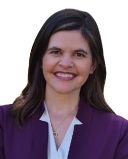Health
Can Facing Death Create a More Meaningful Life?
An interview with a palliative care physician.
Posted September 9, 2021 Reviewed by Devon Frye
Key points
- Dr. Kathy Zhang, a physician at Bellevue in NYC, was on the front lines during the initial COVID surge.
- She shares her thoughts on moral injury, healthcare provider burnout, and building resilience.
- She also explores the beauty of embracing life, even in the face of terminal illness.
On my podcast, The Reflective Doc, I interview experts in medicine, behavioral health, and coaching to help my listeners live their healthiest life. This interview is with Dr. Kathy Zhang, the host of the podcast, The Purpose Filter, and a writer, speaker, and palliative medicine physician at Bellevue hospital in New York City.

Jennifer Reid: Dr. Zhang, welcome! I know you're at Bellevue Hospital in New York, an early epicenter of the COVID-19 pandemic. What was it like being the leader of this palliative care team during a pandemic?
Kathy Zhang: Looking back, it was really challenging. I mean, when we were in the surge itself, you're running on adrenaline, right? Normally we have patients who pass away, you know, maybe once a week or maybe a couple of times a week—but we were seeing on our list of patients six, seven, or eight deaths per day. Some that we couldn't even get to before they passed, because of just how sick they were, how understaffed we were, despite the volunteers, despite the reassignments from disciplines like psychiatry. So it was really challenging.
I think all of us on the team had a different way of coping and reacting to it. I, myself, struggled a lot with it. I think my worst time was when things were getting better—when you have the time to kind of sit back and just be like, “Okay, what just happened? How am I going to process this?” And I actually was, admittedly, in a really dark space, where I just was so traumatized. I had to go to therapy for a while, because it was just a lot.
You go into this knowing that you're going to see a lot of the things that you expect—but just the rapidity of it, the volume of it, was just so, so overwhelming, I think for so many people in the healthcare industry, it was tough. I've gotten to a place now where I can talk about it a little bit more, with therapy, with coaching, things like that. But it was really intense for a long time.
Reid: It was such an unprecedented time. How do we protect the people that are helping, like the healthcare providers and frontline workers? Or, how do we help them with increasing resilience—the ability to sustain and get through it?
Zhang: Yeah, that's a great question. I guess what I think helped is something that I really had to work on in therapy, which was allowing myself to feel the emotions that I was feeling. I had built up this idea of what a “good” palliative care physician should be. I prided myself on compartmentalizing well and being good at not taking things home with me.
And then the pandemic hits and you're just like, “Why am I crying nine times a day? Why can't I function? Why am I having trouble sleeping?” It was helpful for me to just be like, “Of course I'm going to be sad. Of course, I'm going to feel all these emotions because it's devastating in many ways.”
To maybe move into a broader sense of how we can support our healthcare workers, there is this emphasis on self-care as the vehicle by which we deliver the best care for our patients. It's saying, “My mental health is my health and I need to take care of it. And I might need to say no to some things, I might need to take time off from actual clinical work,” which I was fortunate enough to be able to do with our leadership here, to just reset and really process.
When you're in trauma, you can't see what's ahead of you. You're just fumbling. I was even angry at my non-medical family members or friends who didn't understand what I was going through. And how could they, right? I was like, “Why am I angry? I shouldn't be angry, but I am.” So I think there's a lot of opportunities; there's a lot of work to be done.
Reid: Are things that you've been able to share with patients who may be terminal—who were facing that reality—that you found were comforting or helpful to them? How do you guide them through something that's just so frightening?
Zhang: When our patients have to confront it, there's a spectrum of emotions and feelings that they go through and it’s our job to normalize that. Just thinking about this pendulum that goes back and forth, like “Okay, I could not make it. But I'm here and I want to enjoy life. I want to live.”
We talk about what's important to them. Some of them have these lofty goals: they want to travel the world, and they want to do all these things that they wish they'd done when they were not sick. And some are just like, “I want to be able to eat ice cream without vomiting it up.” Or “I want to live long enough so I can see my granddaughter graduate from college.”
We work with them to do things like life reviews, where they'll start to really think about their life, and what their life has meant to others, and what they have found most meaningful. And so that's how we try to approach these really difficult conversations.
So it's a lot to balance. But I think the mindset of being able to say, “I'm going to live in this moment, for now, the best that I can. Because who knows?”
Portions of this interview excerpt have been edited for length and clarity The full interview can be found here.




